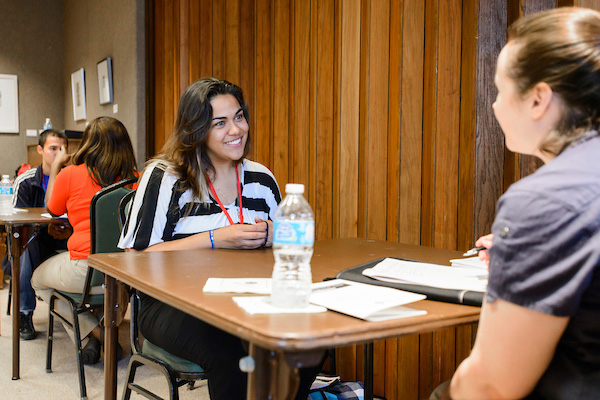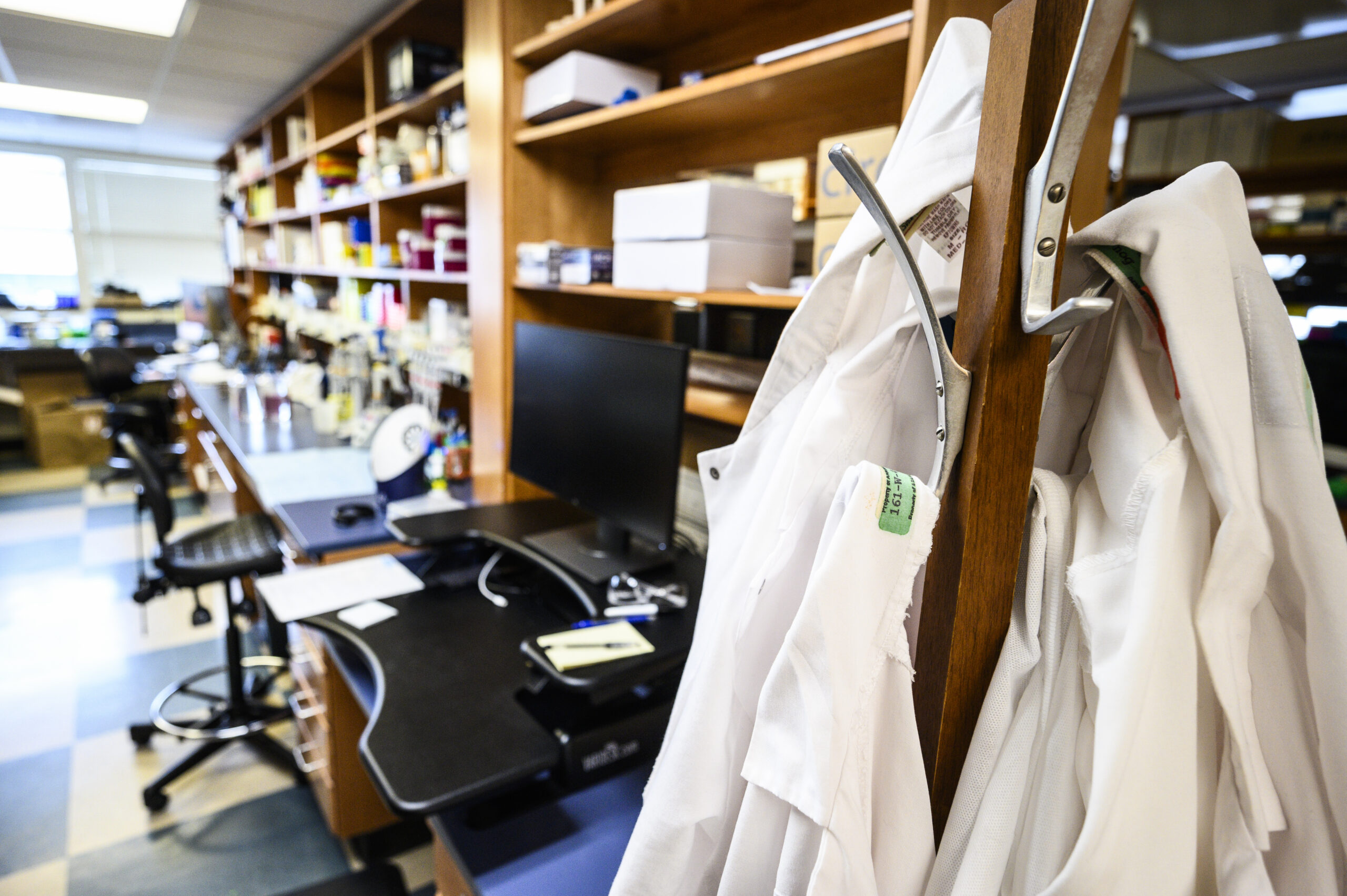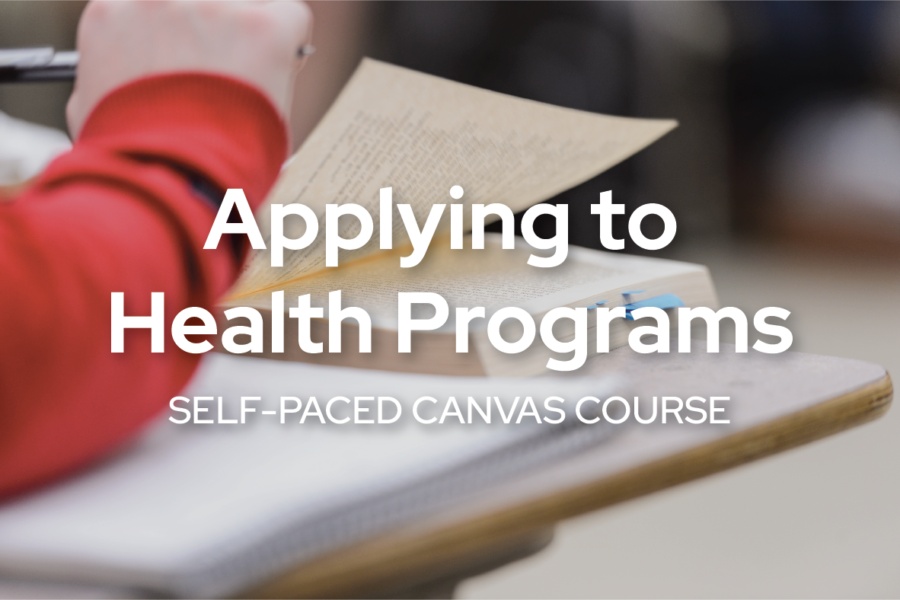About Orthotics & Prosthetics
Certified orthotists and prosthetists (CPO) are allied health care professionals who work with patients to:
- assess their functional ability
- craft orthotic/prosthetic treatment plans
- design, fabricate, and build orthotic and prosthetic devices
- remain connected with patients over time to provide continuing care
Orthotists create orthopedic braces that externally support a patient’s musculoskeletal system, while prosthetists create custom artificial limbs for patients. Learn more at whatispop.org (POP: Prosthetics, Orthotics, and Pedorthics).
Orthotists and prosthetists have unique expertise in patient assessment as well as device materials and design. Their skills allow their patients to have increased independence and mobility.
CPOs work in a multitude of settings, some of which are veteran affairs, rehabilitation, and long-term care facilities, along with hospitals and patients’ homes.
Note: UW-Madison does not offer a prosthetics and orthotics (P&O) program. While this field is not among CPHA’s primary areas of advising expertise, we are here to support you in exploring the career, building helpful experiences, and navigating some aspects of professional program applications. Talk with us if you have questions!
Degree/Certification Paths
This is an accordion element with a series of buttons that open and close related content panels.
Orthotist & Prosthetist (CPO, CO, CP)
Become a Certified Orthotist (CO), Certified Prosthetist (CP), or Certified Prosthetist Orthotist (CPO) by completing the following:
(1) Graduate with a bachelor’s degree and take specific pre-req classes.
(2) Complete a master’s degree program,
(3) Complete a NCOPE-accredited residency.
(4) Pass a certification exam in orthotics, prosthetics, or both from the American Board for Certification in Orthotics, Prosthetics and Pedorthics (ABC), the Board of Certification/Accreditation, International (BOC), or both.
O&P Assistant/Technician
O&P Assistants and Technicians are associates or bachelor’s level practitioners who work with CPOs to care for patients and design and construct O&P devices. Learn more on the American Board of Certification (ABC) website.
Mastectomy Fitter, Therapeutic Shoe Fitter, Orthotic Fitter, Pedorthist
These are specialized, credentialed practitioners who have undergone training and passed an American Board of Certification (ABC) exam. Learn more on the ABC website.
Explore Your Interest in Orthotics & Prosthetics
Shadowing & Informational Interviewing
An excellent way to explore your interest in P&O is by talking directly with providers. Shadow or conduct informational interviews with CPOs to learn what their day is like. Look for CPOs on social media and see if they are willing to talk about their career.

Volunteering
Health professions programs look for applicants who demonstrate a sustained commitment to serving others in healthcare and community settings. Learn more about opportunities to volunteer in clinical and non-clinical settings.
Jobs
Explore patient care roles and other health jobs to gain experience working with people. Consider working or volunteering alongside P&O professionals. The American Board of Certification website can help you find facilities to reach out to. Confirm that this work is something you enjoy!
Additional Exploring Resources
- Listen to Orthotist, Prosthetist, and Pedorthist professionals share their journey on the What is POP YouTube channel.
- Connect with Kimberly Gorbutt (KGorbutt@uwhealth.org), CPO, a local Certified Prosthetist Orthotist at UW Health, who has generously shared her contact information with those who wish to learn more about the profession.
- Reach out to the Northwestern University Prosthetics-Orthotics Center (NUPOC) in Chicago, IL by emailing nupoc@northwestern.edu to get connected with P&O faculty and students.
Finding a Program
National Commission on Orthotic and Prosthetic Education (NCOPE) program directory
Commission on Accreditation of Allied Health Education Programs (CAAHEP) program directory. Under “Profession” click “Orthotist/Prosthetist”. You can also search O&P Technician and O&P Assistant programs.
Connect with the Northwestern University Prosthetics-Orthotics Center (NUPOC) in Chicago, IL by emailing nupoc@northwestern.edu or following @nupoc_studentsociety on Instagram.
Educational & Professional Assocations
- American Academy of Orthotists and Prosthetists
- American Board for Certification in Orthotics, Prosthetics and Pedorthics
- The Collaborative on Inclusive Action and Engagement
- Commission on Accreditation of Allied Health Education Programs (CAAHEP)
- National Commission on Orthotic and Prosthetic Education (NCOPE)
Preparing for an OP Program
Requirements vary from school to school, so it’s always necessary to consult program websites. Find a list of programs via the links above.
Pre-requisite courses may include:
CPOs Required Coursework
| Topic | Credits/Semesters | UW-Madison Courses |
|---|---|---|
| General Chemistry | 8-10 credits or 2 semesters | Choose one of the following sequences: Chemistry 103-104 Chemistry 109 |
| Biology | 5-10 credits Usually labs are required. | Choose one of the following sequences: Zoology 101-102 + an additional bioscience course Options include: Genetics, Microbiology, Cell Biology, Immunology Note: you may need to do an additional bio-science course with lab Biology 151-152 Biocore 381-382 AND 383-384 satisfies Intro to Bio requirements Biocore 485-486 Organismal Biology lecture/lab (Satisfies I/A bio) *Biocore: Students must apply to enroll in Biocore. For more information, visit the Biocore Website |
| Anatomy with lab | 4-5 credits | Anatomy & Physiology 337- lecture Anatomy & Physiology 338 - lab |
| Physiology with lab | 4-5 credits | Anatomy & Physiology 335 - lecture & lab |
| Physics | 8-10 credits | Choose one of the following sequences: Physics 103-104 (algebra-based) Physics 201-202 (calculus-based; intended for Engineering majors) Physics 207-208 (calculus-based; intended for Life Science majors) *If physics is required for your major, select the sequence recommended by your major. If physics is not required by your major, physics 103-104 is an appropriate choice. |
| Statistics | 3 credits | Stats 301 Stats 371 Psych 210 A statistics course in your major |
| Math | Schools like to see math at the college level | |
| Psychology | 3 credits | Psych 202 |
Most programs do not require a standardized test, but some will accept or require the GRE. The module “Prepare for the GRE” on our “Applying to Health Professions” Canvas course has more information on study plans, resources, and tips for the GRE.
Application Process
Some but not all accredited Orthotic and Prosthetic programs use OPCAS as a common application. Others will have you apply on their website. Applications open in July to start the summer/fall of the following year. Some programs do rolling admissions or have a priority deadline, so it can be helpful to apply early.
The OPCAS Help Center shares more information about application components and the OPCAS fee waiver program.
Most programs do not require a standardized test, but some will accept or require the GRE. The module “Prepare for the GRE” on our “Applying to Health Professions” Canvas course has more information on study plans, resources, and tips for the GRE.
Enroll in Applying to Health Programs
CPHA runs a Canvas course called Applying to Health Programs, a non-credit course designed to help you with the process of applying to programs like an OP program.


